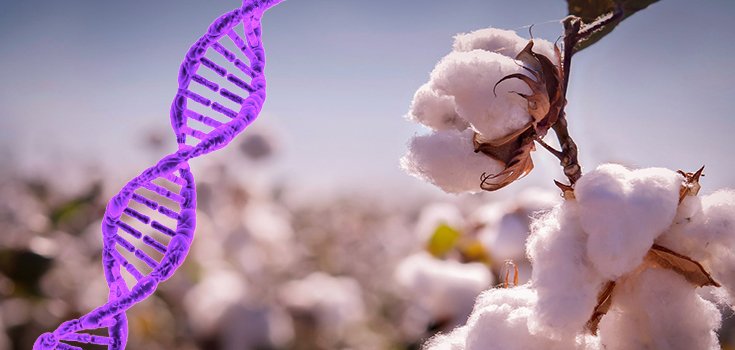Court in India Clears Path for Monsanto (Bayer) to Claim GM Cotton Patent

On January 8, 2019, following a protracted legal battle, India’s top court ruled that Monsanto can own patents on genetically modified (GM) cotton seeds. The decision overturns a Delhi High Court ruling which said the country’s laws barred plant varieties and seeds from being patented.
Monsanto’s Bt cotton seeds were introduced to India in 2002. Today, more than 90% of the country’s cotton crop is genetically modified. The seeds are referred to as Bt cotton because they have been inserted with a pest-resistant toxin called Bacillus thuringiensis.
The court decision could encourage biotechnology to increase investment in India. In the past, DuPont Pioneer and Syngenta were concerned about losing patents on GM crops in that country.
Read: Monsanto has Been Overcharging and Swindling Indian Farmers for Far too Long
The Delhi High Court ruled in April 2018 that Monsanto could not claim patents on Bollgard and Bollgard II cotton seeds in India under the country’s Patents Act of 1970. The act dictates that plant varieties and seeds cannot be patented, thereby allowing the court to reject Monsanto’s attempt to block its Indian licensee, Nuziveedu Seeds Ltd., from selling the seeds. The ruling also meant that Monsanto could not sue Nuziveedu for unpaid royalties, as its patents had become invalidated under Indian law.
But a spokesman for Bayer, which bought out Monsanto in 2016, said that the Jan. 8 judgment “essentially means that the patent is in force.”
The Supreme Court said it will investigate Monsanto’s allegations that Nuziveedu infringed its intellectual property on Bt cotton seeds.
Frustrated with the ruling, Greenpeace India said:
“One can’t patent life. Seed ownership by farmers has traditionally been an important agricultural practice, but profit-driven giant Monsanto is making our farmers disempowered and dependent!”
The ruling is a big win for Monsanto (now Bayer) and comes at a time when the company needs all the good news it can get. The aggrotech giant stood to lose revenue without a claim over exclusive rights in India, and the company is currently facing thousands of lawsuits alleging that its glyphosate-containing herbicide, RoundUp, causes cancer. [2]
Read: Jury Orders Monsanto to Pay $289 Million in World’s 1st Roundup Trial
Ashok Gulati, a professor at the Indian Council for Research on International Economic Relations in New Delhi, said:
“Pirates cannot be innovators. If we are to respect intellectual property only then can we expect to access the best technologies in the world.”
Sources:
[1] EcoWatch
[2] Bloomberg
